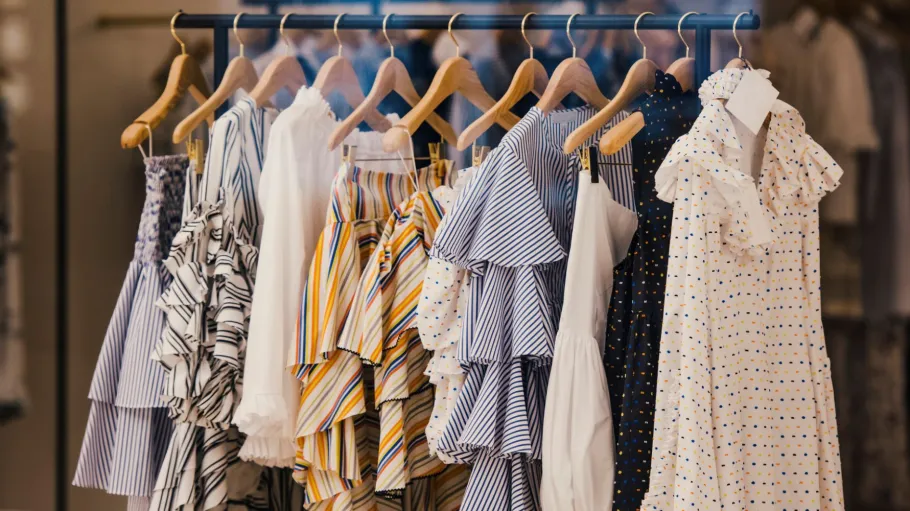The apparel industry, known for its rapid pace and ever-changing trends, is undergoing a profound transformation. In recent years, there has been a growing shift towards eco-friendly practices, driven by a heightened awareness of environmental issues, ethical concerns, and consumer demand for sustainable clothing options. This article explores how the apparel industry is increasingly embracing eco-friendly practices, from sustainable materials to ethical production and innovative technologies. This shift towards eco-friendly practices is not only driven by consumer demand but also by the realization that traditional methods of production are unsustainable and harmful to the environment. As a result, many fashion brands are now investing in research and development to find alternative materials and manufacturing processes that have a lower impact on the planet. Additionally, Brands like vlone have advancements in technology have allowed for more efficient and sustainable production methods, such as 3D printing and digital textile printing, which minimize waste and reduce energy consumption.
Table of Contents
Sustainable Materials: A New Fabric of Fashion
One of the fundamental changes in the apparel industry is the adoption of sustainable materials. Designers and manufacturers are actively seeking alternatives to traditional textiles that have a heavy environmental footprint. Organic cotton, hemp, bamboo, and Tencel (made from sustainably sourced wood pulp) are just a few examples of eco-friendly materials gaining prominence. These materials not only reduce the carbon footprint of clothing but also promote responsible resource management.
In addition to reducing the carbon footprint, sustainable materials also have other benefits. For instance, organic cotton and bamboo are known for their softness and breathability, making them comfortable options for clothing. Moreover, the use of these materials encourages consumers to make more conscious choices and supports the growth of a more sustainable fashion industry.
Ethical Production: Raising the Bar for Fair Labor Practices
Beyond materials, ethical production practices are a significant focus for the industry. Brands are increasingly scrutinizing their supply chains to ensure fair labor practices and safe working conditions for workers. Transparency is becoming the norm, with companies sharing information about their production processes and the treatment of workers.
This shift towards ethical production not only addresses the social impact of the fashion industry but also encourages sustainable business practices. By promoting fair labor practices and safe working conditions, brands are taking steps towards creating a more responsible and transparent supply chain. This not only benefits workers but also allows consumers to make informed choices and support brands that align with their values.
Reducing Waste: The Circular Fashion Economy
The apparel industry has long been criticized for its contribution to excessive waste, particularly the “fast fashion” model. However, a shift towards a circular fashion economy is gaining momentum. This approach emphasizes the reuse, repair, and recycling of clothing. Brands like king spider are designing products with longevity in mind, enabling consumers to extend the lifespan of their garments. Rental and resale platforms are also on the rise, reducing the overall demand for new clothing.
This shift towards a circular fashion economy not only addresses environmental concerns but also promotes a more sustainable and ethical industry. By encouraging consumers to embrace second-hand clothing and repair services, it fosters a culture of conscious consumption and reduces the reliance on resource-intensive production processes. Additionally, this shift presents opportunities for innovative business models and collaborations within the fashion industry, paving the way for a more responsible and resilient future.
Innovative Technologies: Pioneering Sustainable Solutions
Technology is playing a crucial role in the industry’s eco-friendly transformation. Innovations such as 3D knitting, which produces garments with minimal waste, and dyeing techniques that reduce water consumption are becoming more prevalent. Furthermore, blockchain technology is being used to enhance supply chain transparency, Brand like Bape hoodie allowing consumers to trace the journey of their clothing from raw materials to the finished product.
These advancements not only contribute to reducing the environmental impact of the fashion industry but also provide opportunities for companies to differentiate themselves in a competitive market. Additionally, the integration of artificial intelligence and machine learning in the design and production processes is enabling more efficient resource allocation and better prediction of consumer preferences, further driving sustainability efforts.
Consumer Demand: Driving Change from the Ground Up
Perhaps the most significant driver of eco-friendly practices in the apparel industry is consumer demand. An increasingly conscious and informed consumer base is demanding transparency, sustainability, and ethical practices from clothing brands. This shift in consumer preferences is prompting fashion companies to rethink their business models and prioritize eco-friendly initiatives.
As a result, many brands are now implementing sustainable sourcing strategies, using organic or recycled materials, and adopting ethical manufacturing processes. Additionally, some companies are also investing in innovative technologies to reduce waste and carbon emissions throughout the production cycle.
Conclusion: A Greener Future for Fashion
As the apparel industry continues to embrace eco-friendly practices, a more sustainable and ethical future for fashion begins to emerge. From sustainable materials and ethical production to waste reduction and innovative technologies, the industry is gradually transforming to meet the demands of a changing world. Consumers, empowered by information and a desire for positive change, are playing a pivotal role in shaping the apparel industry’s eco-friendly journey. As we collectively make more responsible choices in our clothing purchases, Chrome hearts shirt contribute to a greener and more sustainable fashion landscape. The transformation is underway, and the future of fashion looks increasingly eco-friendly.
